A few weeks before the 2016 presidential election, I re-watched for the third time Paranoia Agent, an anime series that terrified me when I first watched it in middle school and again when I watched it in my junior year of college.
The premise seems ridiculous when you think about it: A boy in golden roller skates terrorizes Japan, knocking out people who feel cornered with a golden baseball bat. The show was even funny at times, reveling in a morbid sense of humor usually at its characters’ expenses, or venturing off into the fantastical, the trippy and the utterly bizarre.
And yet, even when I watched the show this past fall, I still found it frightening—and not necessarily in the way a horror movie is frightening, but rather a frightfulness born out of unease. The show made me anxious; it was somehow able to elicit from me a response similar to what its characters were feeling: The sense that there was some invisible attacker, someone or something that would inevitably rear back and deliver the fatal blow. Only the blow wasn’t physical—no golden bat here. It was psychological; the blow was, in itself, paranoia. It was fear.

The psychological undertones and political implications of the show seem so much scarier now, when I think about it within the context of our current political landscape. In the show, the threat is merely imagined, an idea that gets blown up out of proportion and takes on a life of its own, fueled by people’s paranoia. In fact, you could say that the antagonist of every episode is not Lil’ Slugger, but rather the characters themselves—they create their own villain as a scapegoat, a means by which they can escape any sense of accountability they might have otherwise had to own up to.
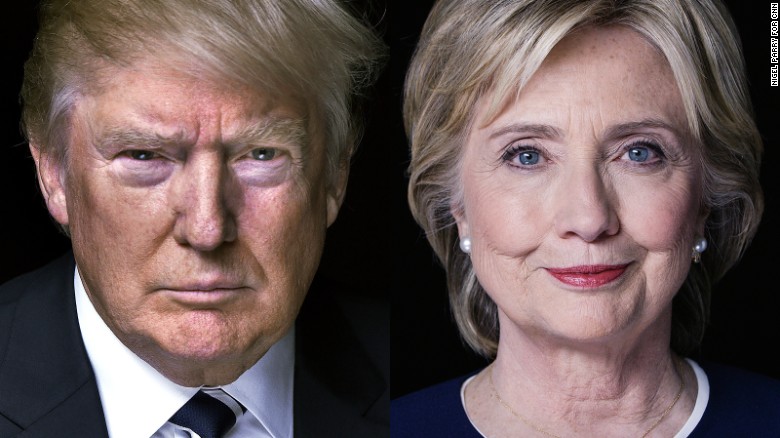
Right now we are a country of divisiveness, a country of paranoia and fear. There are individuals in this country who saw two options in November, one representing an amalgam of every possible kind of regressive thought, one representing something they did not recognize and thus feared; they felt cornered. When we look back at what kind of circumstances could have born this presidency, we see fear. When we consider what could lead our new president and his administration to make daily attacks on civil liberties, arts and cultural institutions, and generally anyone deemed a threat to a dangerously monolithic way of seeing, we see paranoia. We see scapegoats, villains conjured out of thin air: people of color, pro-choice advocates, environmental experts/activists, immigrants, artists, etc., etc., etc. When paranoia seizes a nation, we understand from Paranoia Agent (as well as our own great America, whose population is reeling from the repercussions of a false myth of its own lost “greatness”), the results are dire.
The irony of this grand metaphor I’m using, however, isn’t lost on me: Paranoia Agent is clearly a show about post-War War II Japan, a Japan trying to recuperate from the effects of the bombs that we dropped on the country. This sense of unease, disillusionment, and paranoia, Paranoia Agent says, is a kind of PTSD the country underwent, and perhaps to some extent is still undergoing, in the post-war years. The allusions to the war are omnipresent in the show; in the opening credits alone there is bomb imagery and when the Lil’ Slugger/Maromi incident reaches its apex in the end, Detective Ikari looks at the wreckage and compares it to the wreckage left by the bombs. So to say that this anime, which is very much a product and reflection of a country we devastated so mercilessly in the war, is also a metaphor for our own country right now, may seem odd to say the least.
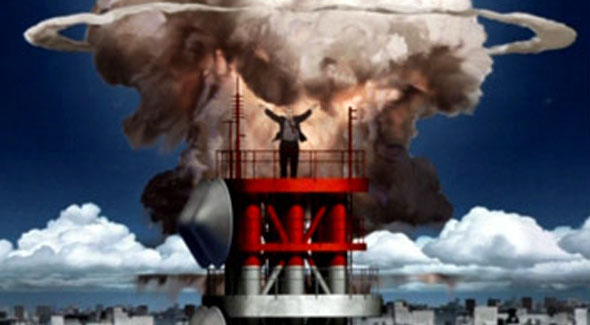
And if I take my examination of Paranoia Agent one step further, there’s also the matter of Maromi, the other side of Lil’ Slugger and the paranoia that plagues the characters in the show. Maromi is the media-friendly mask of the paranoia, the lie that provides a false sense of security and comfort, glossing over the truth.
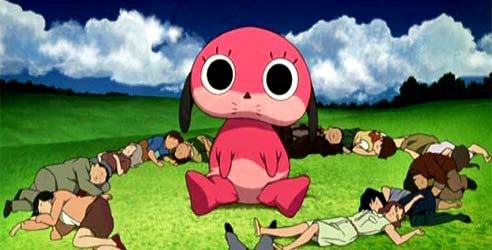
When we consider our age of “alternative facts” versus the actual facts, the mask of the paranoia, the lie that provides this same false sense of security and comfort, is “Make America Great Again.” It’s Donald Trump, who, despite his long list of wrongs and prejudices (not limited to xenophobia, racism, sexism, etc.), is no more the cause of what’s wrong with this country right now than Obama was the panacea for all of its ills. Trump is simply representative of the paranoia, the face—and hair—of the mythology that glosses over, or completely dismisses, the truth. “Make America Great Again” as it has been spoken throughout Trump’s campaign—and now his presidency—has transformed from a vague slogan into a threat, and while paranoid voters across the country bought into this threat to anyone outside of this vision of a “great America,” now the rest of us are paying the price.
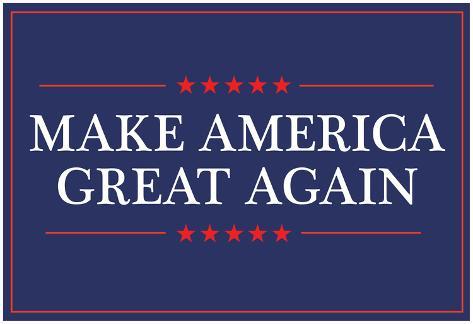
How have you been sleeping in Trump’s America? How have you been watching the news, reading the paper, watching your favorite TV shows? What’s changed? For myself, and for many people I know, there have been dark clouds hanging in the air. I feel panicked, anxious. How will this new, “great America” see me, as a black woman? How will it see other women? Other people of color? How will it see our national parks and our schools and our neighbors overseas and our planet, growing warmer each day? We’re a country that has fed off of fear and now it has become native to us; fear, above reason and above facts, is the new status quo.
This occurred to me as Paranoia Agent came to the forefront of my mind again in the last few weeks, and I have to say that in this comparison, I don’t want to conflate the Japan with America and certainly not the bombings of Hiroshima and Nagasaki to the inauguration of Donald Trump. I won’t compare an atrocious attack that caused the deaths of hundreds of thousands to the installment of a blowhard to our highest office of power in this country, though I will say both damaged their respective country’s psyches.
But at the end of the day, we’re not in an anime. There’s no boy with a golden baseball bat, no mystery to solve. We’re dealing with real life, in a country that is dealing with the very real circumstances of what happens when people are seized by paranoia and fear, when they fall back on regressive views and prejudices. The question now becomes how we deal with that fear: Do we shrink away, feeling lost and cornered, or do we channel that fear into protests, into advocacy, into education, into art? Do we grab the bat and fight back?

Are you following Black Nerd Problems on Twitter, Facebook, Tumblr or Google+?


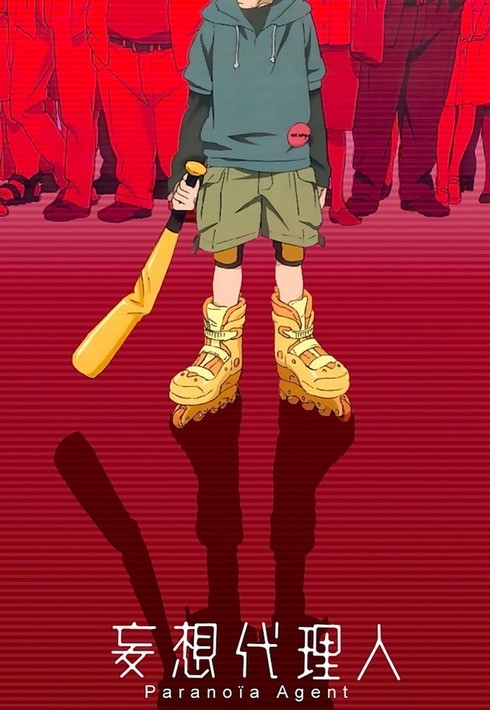
Show Comments